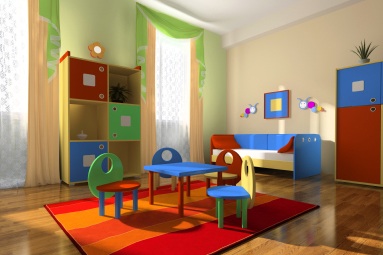My friend Rohini keeps talking about how different her two children are from each other. While five-year-old Sneha has a fairly mild disposition, three-year-old Rahul exhibits frequent bouts of temper.
Sometimes when Rahul gets angry he wags his finger at his mother and lets out a stream of babble. He does not “behave” at the grocery store, and when his mother admonishes him, he simply sulks. And then she finds it hard to catch his attention.
But instead of plain “disciplining”, Rohini is trying to reach out to him in a way that he doesn’t become a slave to his moods but is not drained of the essential energy that makes him uniquely Rahul.

Taming The Temper [Illustration by Shiju George]
As Rahul is just learning to speak, he finds it difficult to put his thoughts and needs into words. This inability to express himself clearly probably fills him with frustration. This, in turn, makes him aggressive enough to throw tantrums. That is what Rohini has gathered from observing him.
There are other situations, too, that demonstrate a child’s inability to comprehend “normal” ways of functioning as we see them after years of socialisation.
For instance, your child has been playing in the park for an hour and it is getting late and dark. You tell your child that it is time to go home. But he insists on staying a while longer. And when you decline, he gets upset and begins to throw a tantrum. He is unable to understand the meaning of the word “late” or even day and night.
As he’s very young, patience on the part of the parent helps. And, probably, if his request is not too impossible, you may even try and indulge him. But if such tantrums continue and, in fact, get worse, then you need to rethink on the ways to channelise his energies.
What to do
It’s always worth the effort to ask the child to lend you a helping hand, be it at the grocery store or at home. He can do tasks like picking out all the biscuits and fruits at the store. He could even help you lay the table at home.
Get into the habit of making lists into which you put your child’s inputs as well. It is one way of making him feel that he is being relied upon to perform an important function.
It will also help if you prepare your child for trips to the grocery store by making it clear that “We only buy what’s on our list, and you must stay by the cart.” Also indicate that the joint trip to the grocery store may be in jeopardy if too many untoward incidents happen!
It helps for a parent to be firm with the child but not frantic or anxious. Children are quick to catch vibes and react accordingly. But there are some things that you can do on your part. Enable your child to put anger into words. “You’re angry because you don’t like to share your toys but if you don’t how will they share their toys with you?”
Nothing works better than distraction when your child is about to throw a tantrum. It will shift his attention and he will probably forget about the tantrum or be less angry.
Just as in the case of adults, children, too, require time to return to their emotional equilibrium. Therefore, listen to his tirade and help him simmer down in a while.
As time goes by, you will be able to make out if the frequency of the tantrums has diminished or not and if your child takes less time now to get out of the tantrum. If you can eventually answer ‘yes’ to both, you’re effectively helping your child manage his anger and, probably, you are learning to do the same yourself as well!










